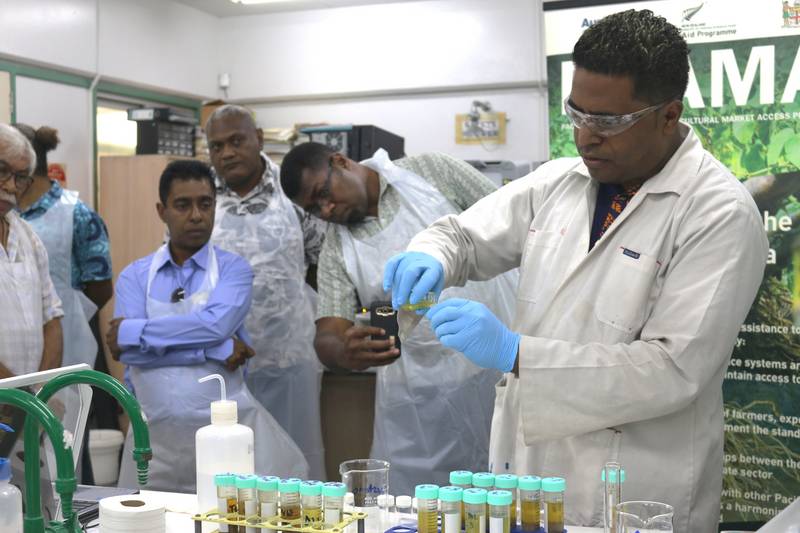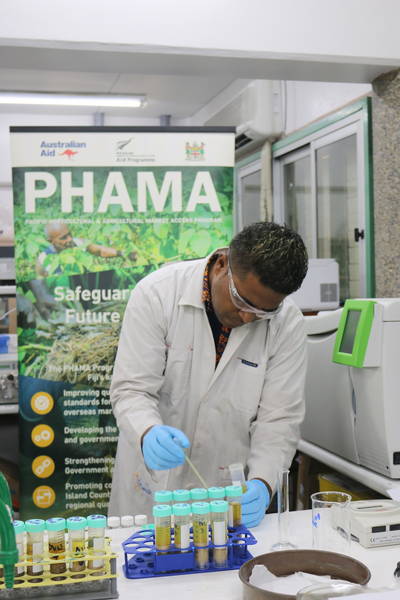Related News

In an effort to improve the quality and quantity of Kava currently being exported from Fiji, the Institute of Applied of Sciences (IAS) conducted a training on 21 and 25 April for kava industry stakeholders on identifying different types of Kava. With the support and endorsement of the Ministry of Agriculture (MoA) Fiji, Biosecurity Authority of Fiji (BAF), Fiji Exporters of Kava and in collaboration with the Pacific Horticulture and Agricultural Market Access (PHAMA), the training focused on Colourimeter Testing on Kava species. The IAS Laboratory Manager Dr Vincent Lal and Scientific Officer Jeremaia Koroijiuta facilitated the training and the participants were from the MoA, PHAMA, FEK and BAF.
The Kava industry is generating millions of dollars into the Fiji Economy and with the re-opening of the Europe market for Kava and the existing markets in other countries, there remains a strong need to protect the Kava cultivated and processed in Fiji. Most data from Kava publications confirm that varieties of Kava were classified into two types – Noble Kava and Two-day kava. Further research suggests that lethargy and nausea may not be the only harm of Two-day cultivars but Flavokavain B (FKB) a chalcone from kava root has been proven to be toxic to some liver cells (hepatotoxicity). Under normal preparation and consumption of Noble Kava root the amount of FKB is negligible or non-existent. Once kava is dried and ground, Noble and Two-day varieties are indistinguishable and can only be differentiated through High Performance Liquid Chromatography (HPLC) analysis of chemotype, of FK/KL (Flavokavains/Total Kavalactone content) or Acetonic colour testing.

Kava stakeholders had consistently raised the need for a rapid assessment to distinguish the so called “Good Kava” from the “Bad Kava” here in Fiji. IAS was to adopt the method developed by a leading Kava specialist Dr Vincent Lebot who also had worked on selected Vanuatu varieties. IAS screened through selected Fiji varieties for method development, presented its findings and conducted the laboratory-based training on how to use the simple colourimeter kava kit for the participants.
The participants at the training collectively agreed that the quality of the content and delivery were very satisfactory. The Talanoa session that followed highlighted for more quality data to be gathered to capture the entire Fiji varieties for formulation of the Fiji Kava Quality Control policies. In addition more scientific research and development programs for Fiji Kava in other related scope is needed to develop the Kava industry.